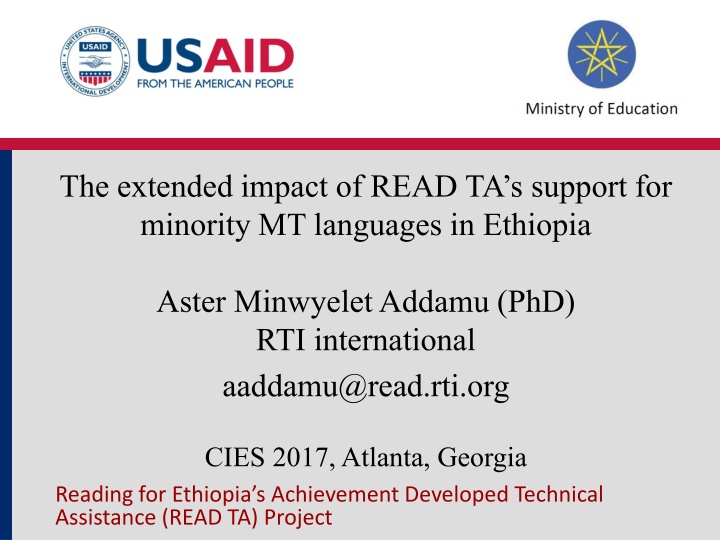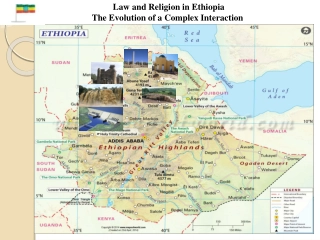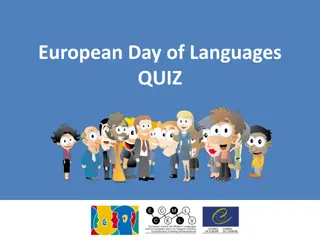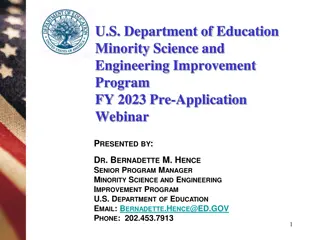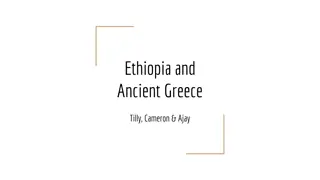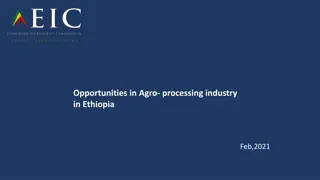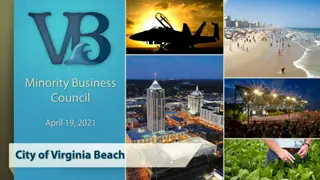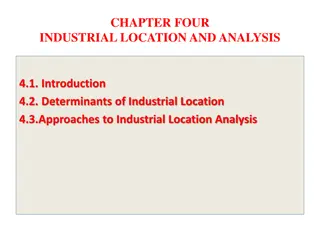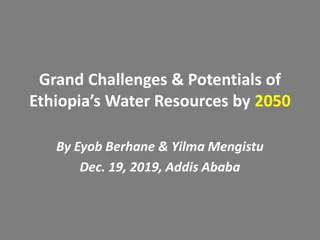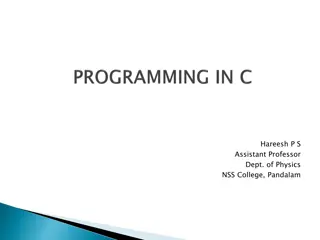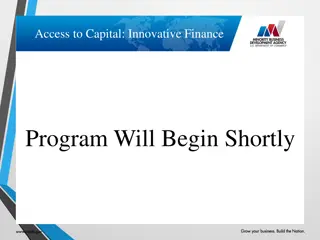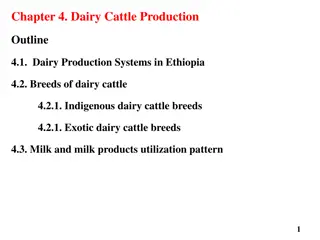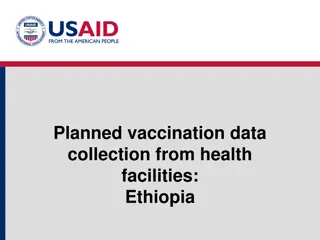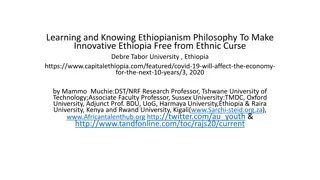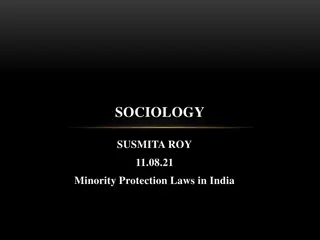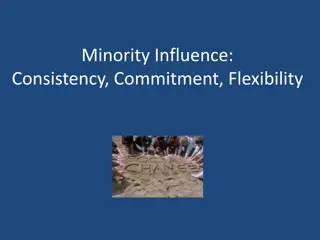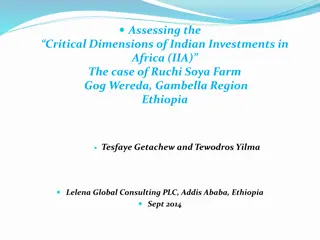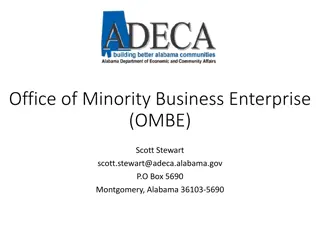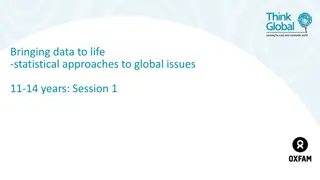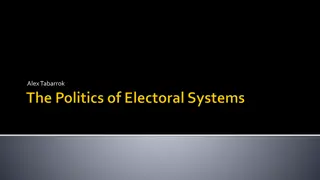Supporting Minority Languages in Ethiopia: The Impact of READ TA Project
The READ TA Project in Ethiopia focuses on supporting minority languages to improve educational outcomes. With over 83 languages spoken in the country, the project aims to promote language equality and provide technical assistance for effective language policies, teacher training, and curriculum development. By addressing language diversity, the project seeks to enhance learning outcomes and literacy rates among diverse ethnic groups in Ethiopia.
Download Presentation

Please find below an Image/Link to download the presentation.
The content on the website is provided AS IS for your information and personal use only. It may not be sold, licensed, or shared on other websites without obtaining consent from the author.If you encounter any issues during the download, it is possible that the publisher has removed the file from their server.
You are allowed to download the files provided on this website for personal or commercial use, subject to the condition that they are used lawfully. All files are the property of their respective owners.
The content on the website is provided AS IS for your information and personal use only. It may not be sold, licensed, or shared on other websites without obtaining consent from the author.
E N D
Presentation Transcript
The extended impact of READ TAs support for minority MT languages in Ethiopia Aster Minwyelet Addamu (PhD) RTI international aaddamu@read.rti.org CIES 2017, Atlanta, Georgia Reading for Ethiopia s Achievement Developed Technical Assistance (READ TA) Project
Overview of Ethiopia >90 million 9 regions, 2 city administrations Diversity Religious Multicultural (>60 Ethnic groups) Multilingual (83 Languages) READ TA Project/USAID and RTI
Language policy Equal status for all languages Official/administrative Judiciary Educational Amharic federal language 1994 constitution 1994 Use of MT languages in primary education Identity pedagogical advantage psychological impact education & training policy READ TA Project/USAID and RTI
Language policy Effects on MTs Grades No of MTs 1-4 22 1-8 10 . Medium of instruction Grades 1-4 1-12 Taught as subjects No of MTs 14 16 Primary school teacher training for MTs READ TA Project/USAID and RTI
Ethiopian languages Semitic Amharic & Tigrinya Omotic Wolayttatto Geez & Latin scripts Language families Cushitic Hadiyyisa, Afaan Oromo, Sidaamu Afoo, Af-Somali Nilo-Saharan READ TA - 7 languages READ TA Project/USAID and RTI
National Learning Assessment (NLA - 2008) READ TA Project/USAID and RTI
SNAP SHOTS OF EGRA (2010) RESULTS Percentage of Children Scoring 0% on Reading Comprehension 7 READ TA Project/USAID and RTI
EGRA 2014 overview . Percent 0 scores in reading comprehension 90 80 70 60 50 40 30 20 10 0 Hadiyyisa Wolayttatto READ TA Project/USAID and RTI
READ TAs technical support to MoE&RSEBs USAID funded, 5 years project, started in 2012 Curriculum revision/ development Grades 1-8 Syllabus, S&S, SBs, TGs 7 MTs English CTE curriculum for MTs syllabus + module dev t School teachers CTE lecturers Teacher training Short trainings & workshops Educational leaders Experts (inbuilt) Resources (ICT) Capacity Building ICT package for CTEs AT pilot for inclusion Model video & audio production READ TA Project/USAID and RTI
Curriculum revision/development - team International reading specialist Illustrators Designers & typists Gender Inclusive education School teacher Language expert RSEB MT expert Reading & curriculum specialist Story/text writer READ TA Project/USAID and RTI
Team composition - effects Diverse experts Teamwork, professional dialogue, collaboration (one place) Extended interaction/months Continuous training & support: contemporary approaches learning MT Quality assurance team feedback Better Quality material production Capacity building READ TA Project/USAID and RTI
READ TAs extended impact Observing frequent requests for support Reports - MT curriculum revision for minority languages Desire to study Motivation Process Successes Challenges Interviews - key participants (Amhara & SNNPR regions) READ TA Project/USAID and RTI
Motivational factor Desire for equal focus How 7 MTs were selected? How about our MTs? Aren t we citizens? What is the scale up plan? Lack of materials written in the minority MTs Need quality textbooks at least Seeing better Quality materials production under READ TA Pressure on RSEBs MT curriculum revision with own budget & human resource (Zone/Woreda required to plan) >10 languages-SNNPR & 2 in Amhara READ TA Project/USAID and RTI
Process followed 1. Expert identification Amhara 3 experts/grade (CTE, school & RSEB) SNNPR 7 experts (grade 1-4) used READ TA guideline 2. Training 10 days - SNNPR 5 days - Amhara Provided by RSEBs Lacks on-going support READ TA 9 experts/grade 1 month initial training & preparation Continuous need based trainings and support READ TA Project/USAID and RTI
Process followed 3. Revision Amhara SNNPR More of translation Part-time, no team work, Intensive editing- by zonal experts No support from international experts 10 days validation Teacher/lecturers, elders, gender experts, youth association members Zone Language family focused adaptation Full time in some cases, team work Lack highly qualified local experts No international experts Approval of the trainer - some MTs 5 days validation for some Zone/woreda (regions provide training only) Not yet printed Teacher training??? Grades 1-4 = printed 5 days teacher orientation READ TA Project/USAID and RTI
Process followed Variations in Revision team selection/no Training duration Expert availability & engagement Revision modality Validation process Pace printing & training teachers READ TA Project/USAID and RTI
Successes Creation of motivation in each language community to use READ TA experience & produce better quality curriculum materials RSEBs positive response to community s requests Using RTI (READ TA) regional staff during non- target MTs revision as trainers Using the human capacity developed via READ TA READ TA Project/USAID and RTI
Successes Using READ TA guidelines/ templates/processes/approaches Using MT material produced under READ TA as source (Amhara region) Conduct revision modeling language families (SNNPR) Wolayittatoo for Omotic; Sidaamu Afoo and Hadiyyisa for Cushitic; Amharic for Semetic MT material production in more than 12 MTs ( Something is better than nothing ) Increased motivation & capacity of experts & teachers involved in the revision process READ TA Project/USAID and RTI
Challenges Lack of qualified experts lack of resource/ text written in the MTs . Very short training No/lack of designers & illustrators who speak the MTs Translation/ adaptation??? No ongoing support from RSEBs Inadequate training for teachers printed in black & white creates dispute Number of books printed are not sufficient Part-time task, no collaboration READ TA Project/USAID and RTI
READ TAs Impact - Introduction of modern approaches New aspect in the curriculum (detailed scope & sequence) New teaching-learning methods New language components/content . Introduction of good practice in curriculum revision Teamwork (various professionals Fulltime engagement Continuous (expert) support Teacher training to introduce revised curriculum was not the case in earlier time Recognition of the good practices READ TA Project/USAID and RTI
READ TAs Impact - . Capacity building Recognition of the capacity built Appreciation of materials in the 7 MTs Increased sensitivity to MT language education How to scale up what READ TA started is a point of discussion in education forums, regional counsel meetings, READ TA Project/USAID and RTI
Conclusion Projects like READ TA may not address every need of a country; however, it can positively influence local actors by Introducing contemporary approaches Exposing to productive procedures Developing local capacity during project activities Producing quality materials that can be taken as models Creating motivation among community Indirect impact (beyond project goals) READ TA Project/USAID and RTI
. Thank you aaddamu@read.rti.org READ TA Project/USAID and RTI
